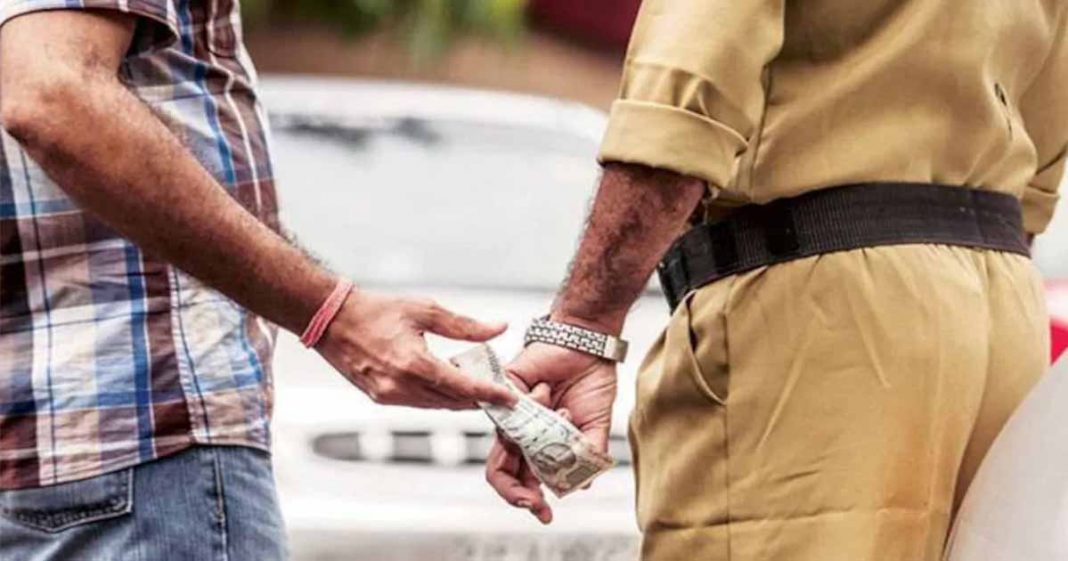India has emerged as having the highest bribery rate of 39 percent in the Asian region and the highest rate of people (46 percent) who used personal connections to access public services, according to a recent survey report released by Transparency International, a global civil society organization.
“Nearly 50% of those who paid bribes were asked to, while 32% of those who used personal connections said they would not receive the service otherwise,” read the report.
For the survey-report titled ‘Global Corruption Barometer – Asia,’ Transparency International surveyed 20,000 people across 17 Asian countries – largely between June-September this year, seeking their perception of and experiences with corruption in the past 12 months. Six key public services are covered in the report including police, courts, public hospitals, procurement of identity documents and utilities.
Read more: India and Pakistan’s finger pointing battle on discrimination
“Of the people surveyed in India, who came into contact with the police, 42% had paid bribes. Use of bribes was also rampant (41%) to obtain official documents such as identity papers. Use of personal connections was also largely made in dealings with the police (39%), procurement of identity documents (42%) and in relation to courts (38%),” the report stated.
India is a flawed democracy, The Economist
In January 2020, India slipped 10 places to 51st position in the 2019 Democracy Index’s global ranking, according to The Economist Intelligence Unit which cited “erosion of civil liberties” in the country as the primary cause for the downtrend.
According to The Economic Times report, India’s overall score fell from 7.23 in 2018 to 6.90 in the index that provides a snapshot of the current state of democracy worldwide for 165 independent states and two territories.
In 2014 (as Modi came to office) the Economist Intelligence Unit (using 60 indicators) ranked India as one of 25 or so most democratic countries of all. Today its ranking has declined to only 51st, as a "flawed democracy". Heading towards authoritarianism?https://t.co/O4MuVBaibb
— Adam Roberts (@ARobertsjourno) January 22, 2020
About India, the report said, the country dropped 10 places in the Democracy Index’s global ranking to 51st. The primary cause of democratic regression was the erosion of civil liberties in the country. The index is based on five categories — electoral process and pluralism; the functioning of government; political participation; political culture; and civil liberties.
Based on their total score, the countries are classified as one of four types of regime: “full democracy” (scores greater than 8); flawed democracy — scores greater than 6 and less than or equal to 8; hybrid regime — scores greater than 4 and less than or equal to 6; authoritarian regime — scores less than or equal to 4.
It is important to note that Indian politics is being shaped by the extremist politicians and strategists who intend to wipe out the Muslim minority from India. Dr. Moeed Pirzada, prominent political commentator and columnist, recently noted that “Ram Rath Yatra, Mandal Commission, Ram Janma Bhoni movement, Attack on Babri Mosque, Demolition of Babri Mosque, Bombay riots, Nuclear Explosions of 1997, Kargil Conflict, Attack on Indian Parliament, Mobilization against Pakistan, Gujrat Pogroms, Mumbai terrorism everything in one or the other was skilfully utilized in redefining Indian narrative and politics moving it ever closer to the realization of a Hindu Rashtra which now exists in reality though it still needs a legal and constitutional cover”.
Gandhi’s India unravelling: was Mahatma’s vision flawed? https://t.co/SsfXWXNmns via @@GVS_News
— Moeed Pirzada (@MoeedNj) January 8, 2020
Apoorvanand, who teaches Hindi at the University of Delhi, believes that the BJP is attempting to hegemonize the diverse India which is likely to backfire. He opines that “the BJP and the RSS are trying to hegemonize diverse, regional and cultural spaces and paint them with a broad Hindu brush. Slowly and gradually, they are trying to gain control over institutions – religious and cultural – by putting their people there”.
Read more: Religious freedom a myth in “secular” India: RSS & Jesus Statue
He further notes that “they are trying to create a Hindu umbrella, which will shelter all these diverse traditions and give people a feeling of being part of a unified whole called Hinduism. They are also eyeing the tribal traditions. This entry into their holy and cultural spaces is now conspicuous”.
Priyamvada Gopal, who teaches in the Faculty of English at Cambridge University, urged the world to think about India and play its part to deal with what is going on in the so-called largest democracy of the world. She noted that “the world must worry. What happens in India happens to nearly one-fifth of the world’s population. And particularly in the context of the global rise of authoritarian ethno-nationalism, the undermining and eventual abrogation of democracy in India will not be contained within the borders of that nation-state”.
Moreover, she lamented that “with a few exceptions, Western and other governments have been shamefully silent on the ongoing assault on democracy and constitutional rights in India. It may suit them to keep quiet but across the world, we must now form people’s alliances to resist what will almost certainly become a global assault on the very idea of democracy itself. Speak up for India, for you speak up for yourself”.














